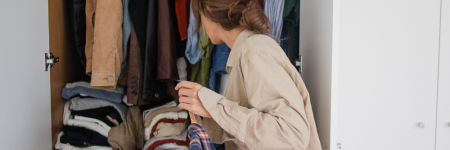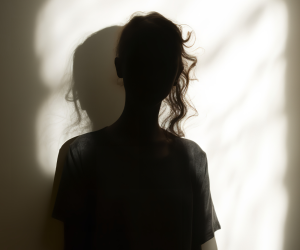Why does our space reflect our mind?
When our home is messy, we tend to feel more irritable and exhausted 😤. This isn’t a myth! Even psychiatrist Carl Jung explained that decluttering your space is also a way to clear your mind and reconnect with what really matters. But why does clutter have such a strong impact on us? For two main reasons:
- 👉 Visual overload: Stacks of papers and disorganized objects constantly stimulate our brain—even subconsciously. The result? It feels like we can never truly relax.
- 👉 Emotional attachment: Why do we hold onto certain objects so tightly? Often, we associate them with memories or feelings of security. However, keeping them can sometimes feel more like a burden than a source of well-being.
It’s not about having a cold, empty home. I’m not a fan of minimalist interiors, but I do believe in decluttering regularly. Otherwise, we risk falling into a hoarding mentality and feeling completely overwhelmed…
The real benefits of decluttering
I started decluttering when I moved for the first time 📦. That’s when I realized just how much stuff I had accumulated—and how many things I didn’t actually use. Since then, I make decluttering a habit because I’ve noticed tangible benefits:
- ✔️ Peace of mind: I feel so much calmer when I’m in an airy, organized space. I can breathe better, think more clearly, and everything is in its place.
- ✔️ Increased productivity: It may sound trivial, but when my workspace is tidy or my kitchen is well-organized, I feel much more motivated to work or cook!
- ✔️ Regained sense of control: Decluttering means making decisions. When I choose to let go of unnecessary things, I feel like I have more control over my space—and my life.
I grew up in a family that never threw anything away. But over time, I realized that this mindset wasn’t always beneficial. We often cling to objects out of fear of losing memories, but we forget that memories live in our minds, not in physical things. And this is coming from someone who loves material possessions 😅! But making choices and letting go helps create a more peaceful home.
👋 You may also like: "Why cleaning can (really) boost your well-being!"
How to start decluttering?
As I mentioned, decluttering doesn’t mean getting rid of everything overnight. It’s a process that should suit each person’s pace. Here are some expert tips from Marie Kondo to help you declutter your home efficiently 😉:
- 1️⃣ Start with a specific area: Instead of tackling everything at once (which can feel overwhelming), begin small: a drawer, a shelf, or a single room 🎯.
- 2️⃣ Use the 3-pile method: Take each item and decide—keep, donate/sell, or throw away. I use this trick for my clothes, and it’s super effective!
- 3️⃣ Ask yourself the right questions: Does this item bring me joy? Is it genuinely useful today? Had I forgotten it even existed before now?
- 4️⃣ Stick to a decluttering routine: Dedicate 20 minutes per day or two hours each weekend to tidying up. I recommend the first option—it’s less overwhelming, especially if you’re neurodivergent!
Decluttering: A gift to yourself and others
Since adopting a tidier lifestyle, I’ve developed a real passion for interior design. I want my home to be cozy, welcoming, beautiful, and stimulating. Creating a peaceful, well-organized space is a gift to myself and to my loved ones, too. After all, an inviting space is a way to better welcome the people I care about. I want them to feel comfortable and at ease in my home.

Let’s be honest, the left side looks way more inviting than the right side, doesn’t it?
Beyond just organizing, decluttering has helped me reflect on my consumption habits. We live in a capitalist society that constantly urges us to buy more, but that’s far from the key to happiness.
Nowadays, I prefer to give things away, especially because it aligns with one of my core values: eco-conscious living. The things we own have value, but if we no longer need them, why not donate them so they can benefit someone else?
Editorial Insight: What Lies Behind the Clutter?Our living space often reflects our deepest emotions. Sometimes, clutter isn’t just about objects—it can be linked to fears, anxieties, or unresolved emotional blocks. If decluttering feels overwhelming or you struggle with letting go, know that you’re not alone. A psychologist can help you understand these patterns and create a comforting, peaceful environment for yourself.
Taking care of your space is often the first step toward personal transformation.
🤗 Understand yourself, accept yourself, and embrace happiness… Start now!
#BornToBeMe Talk to a psychologist |
Also check out:



















Did you like this article?
Want to know more 🤔 ?
Write directly to the authorLaurenHart !
Ask Lauren a question
Want to share your thoughts? Leave a comment